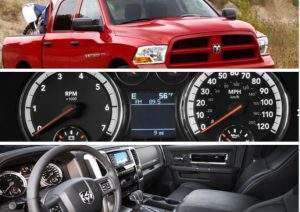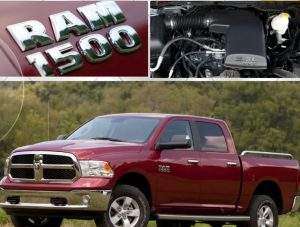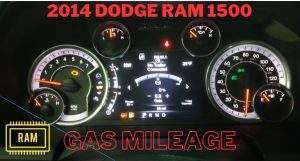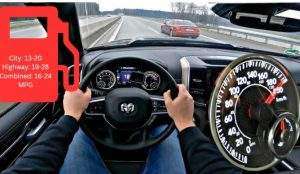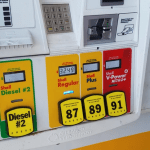Most BMW owners know that their car has a certain distinct smell that sets it apart from others. But if your BMW smells like gasoline, it can be a cause for concern.
Unfortunately, this is a common problem for BMW owners and it can be caused by a few different issues.
In this article, we’ll explain what causes this smell, what you can do to fix it, and how to prevent it from happening in the future.
Causes of Gasoline Smell in a BMW
There are several reasons why your BMW may smell like gas. Let’s dive into the most common culprits:
1.1. Fuel Leak
A fuel leak is the most serious and urgent cause of a gasoline smell in your BMW. A leak can occur in multiple locations within the fuel system, such as the fuel lines, fuel tank, fuel injectors, or the fuel filler neck.
A fuel leak poses a risk not only to your vehicle’s performance but also to your safety, as it can lead to a fire hazard.
1.2. Evaporative Emission Control System (EVAP) Malfunction
The EVAP system is responsible for controlling the release of fuel vapors from your vehicle. When working correctly, the system captures these vapors and recirculates them into the engine to be burned off. If the EVAP system malfunctions, it can result in a strong gasoline smell within the vehicle.
1.3. Overfilling the Fuel Tank
Overfilling your BMW’s fuel tank can lead to fuel spilling into the EVAP system, causing a gasoline smell. While this might seem like a minor issue, it can cause damage to the EVAP system components over time.
1.4. Gas Cap Issues
A loose or damaged gas cap can also cause a gasoline smell in your BMW. The gas cap is designed to create a seal that prevents fuel vapors from escaping the fuel tank. If the cap is not tightened properly or is damaged, vapors can leak out and create an odor.
1.5. Fuel Injector Issues
A malfunctioning fuel injector can cause a gasoline smell as well. If the injector is leaking, it can result in raw fuel entering the engine compartment, leading to the smell of gasoline in your vehicle.
Diagnosing the Problem
Before you can address the issue, it’s crucial to pinpoint the cause of the gasoline smell. This chart will help guide you through the process of elimination:
Diagnostic Process for Gasoline Smell in a BMW
Step 1: Check the gas cap – Ensure it is tightened properly or replace it if damaged.
Step 2: Inspect the fuel system – Look for visible leaks or damaged components.
Step 3: Test the EVAP system – Use a scan tool to check for fault codes related to the EVAP system.
Step 4: Check the fuel injectors – Inspect for leaks and ensure they are functioning correctly.
Addressing the Issue
Once you’ve identified the cause of the gasoline smell in your BMW, it’s time to fix the problem:
3.1. Repairing a Fuel Leak
When you’ve discovered a fuel leak, it’s essential to have it repaired as soon as possible. Consult a professional mechanic who specializes in BMW vehicles to ensure the repair is done correctly and safely.
[Solutions for Each Cause: Fuel Leaks]
- You need to find where the leak is coming from, and then you should fix or replace the broken part causing the problem. Common sources include fuel lines, fuel injectors, fuel tank, and fuel pump.
- Regularly check for signs of fuel leaks, especially after maintenance or repairs.
3.2. Fixing EVAP System Issues
If the EVAP system is the culprit, have a professional mechanic diagnose and repair the problem. This may involve replacing damaged components or fixing a malfunctioning sensor.
[Solutions for Each Cause: Evaporative Emissions System Malfunction]
- Check for damaged or disconnected hoses in the evaporative emissions system.
- Inspect the charcoal canister for cracks or damage.
- Test the purge valve and replace it if necessary.
- Seek professional assistance if you’re unable to identify the problem or if the check engine light is on.
3.3. Avoid Overfilling the Fuel Tank
To prevent overfilling your BMW’s fuel tank, stop filling when the pump automatically shuts off. Additionally, avoid topping off the tank, as this can lead to fuel spilling into the EVAP system. Be sure to also inspect the fuel cap for any damage or wear and replace it if necessary.
[Solutions for Each Cause: Faulty Fuel Pressure Regulator & Damaged or Loose Fuel Cap]
- To check the fuel pressure regulator, you should use a fuel pressure gauge to measure the pressure.
- Replace the fuel pressure regulator if it’s not maintaining the correct pressure.
- Check the fuel cap for damage or wear, and replace it if necessary.
- Ensure that the fuel cap is properly tightened after each refueling.
3.4. Repairing Fuel Injector Issues
If a fuel injector is the culprit, it’s crucial to have it replaced or repaired by a professional mechanic. The experts will identify the problem and figure out the most suitable solution.
In any case, it’s essential to address the issue of gasoline smell in your BMW promptly. Not only is it unpleasant, but it can also pose a serious risk to your safety and the performance of your vehicle.
By performing routine maintenance and inspections, you can avoid these problems from happening initially.
3.5. Engine Misfire
- Check for diagnostic trouble codes (DTCs) using an OBD-II scanner.
- Perform a visual inspection of the ignition system components, such as spark plugs, ignition coils, and ignition wires.
- Replace any damaged or worn components.
Conclusion
A gas smell in your BMW can be a cause for concern, but with proper troubleshooting and addressing the underlying issue, you can quickly resolve the problem. Regular maintenance and inspections can help prevent such issues from occurring in the future. If you’re ever unsure about the cause or the necessary repairs, don’t hesitate to consult a professional BMW technician for assistance.
Frequently Asked Questions
Q: How can I prevent my BMW from developing a gas smell?
Answer: Regular maintenance, including checking for fuel leaks and ensuring the proper functioning of the evaporative emissions system, can help prevent your BMW from developing a gas smell.
Q: Is it safe to drive my BMW if it smells like gas?
Answer: It’s best to address the issue as soon as possible, as it could indicate a fuel leak, which poses a fire risk. In addition, an unresolved gas smell could lead to engine performance problems and increased emissions.
Q: What should I do if I can’t find the source of the gas smell in my BMW?
Answer: If you’re unable to locate the source of the gas smell, it’s recommended to seek professional help from a qualified BMW technician.

